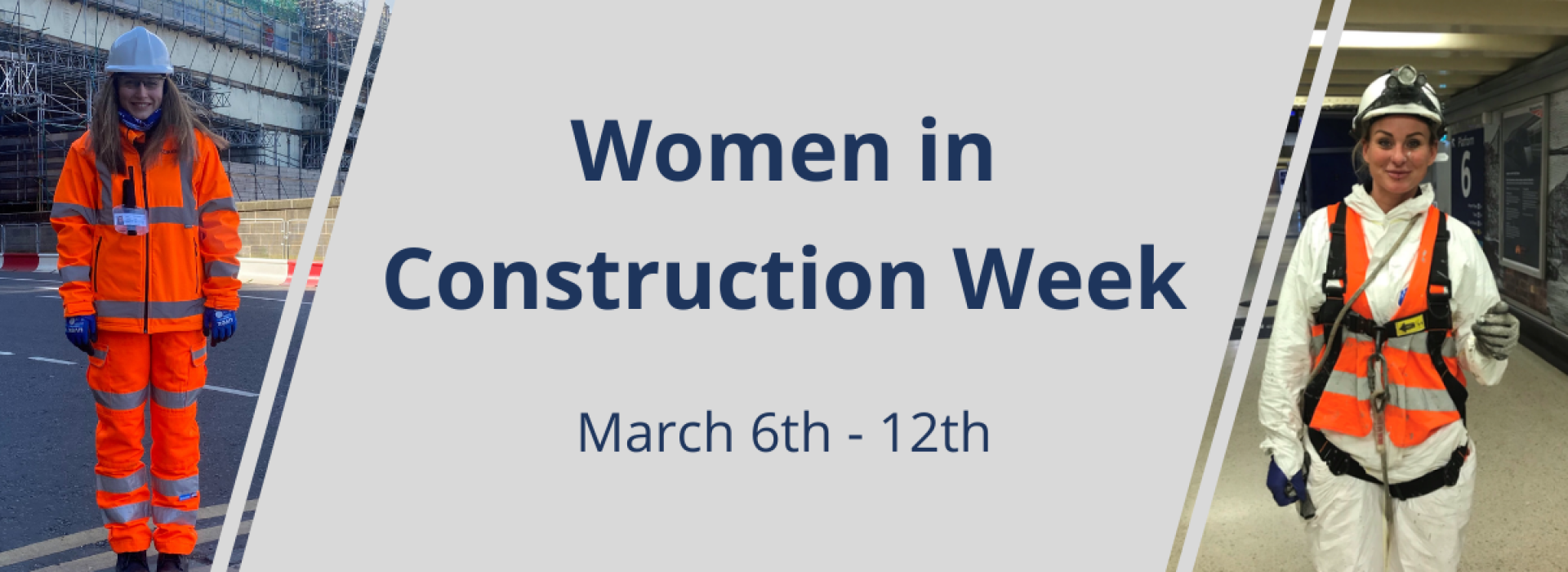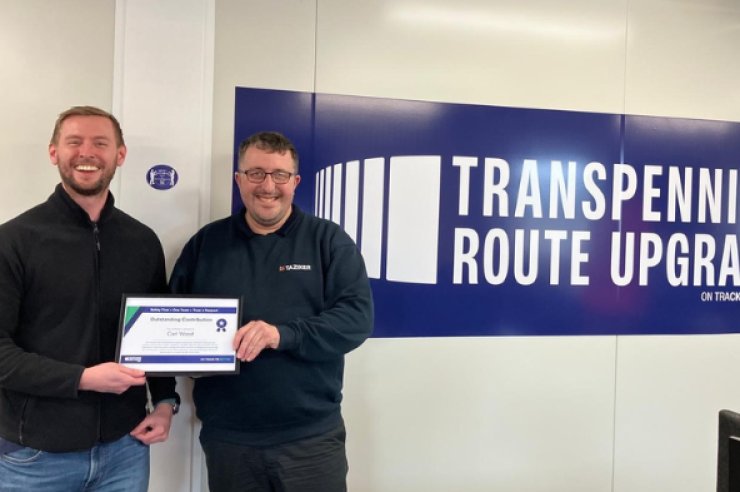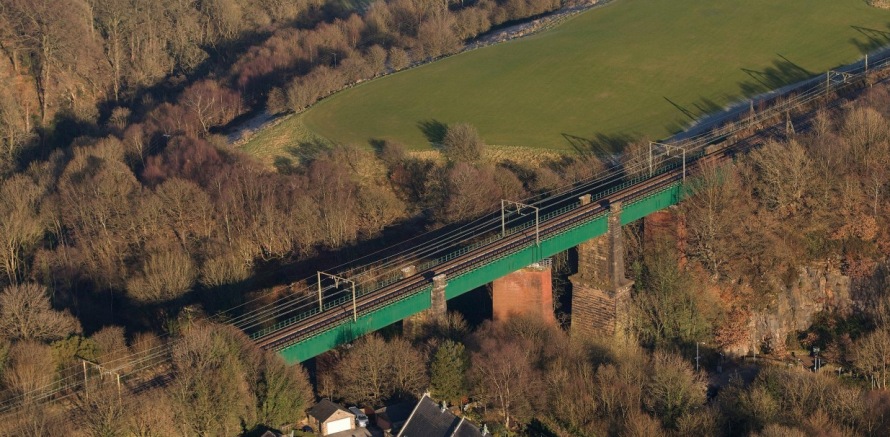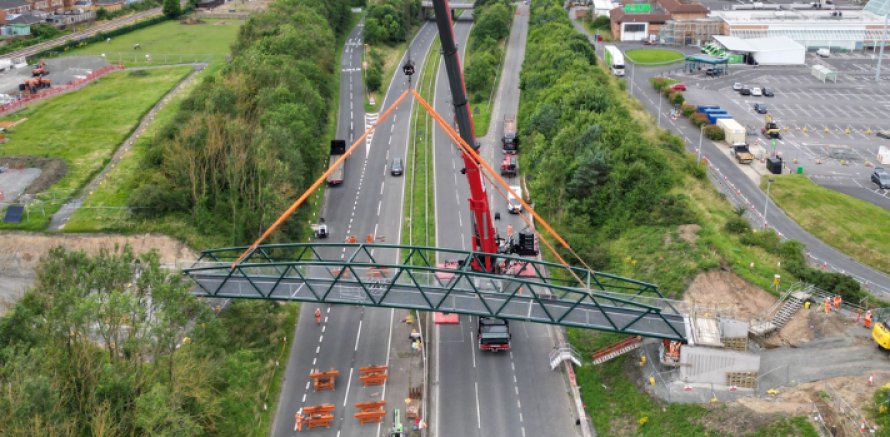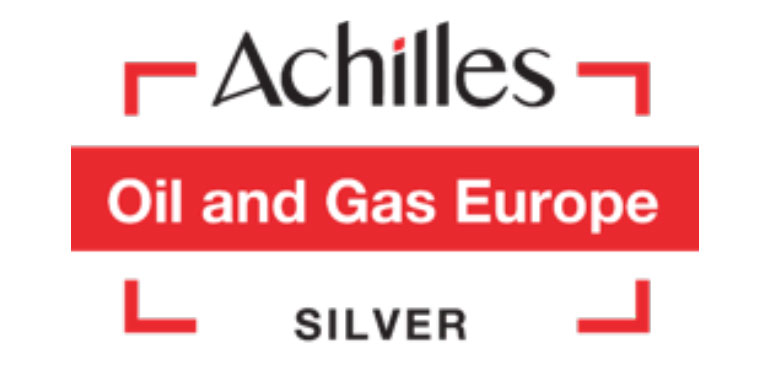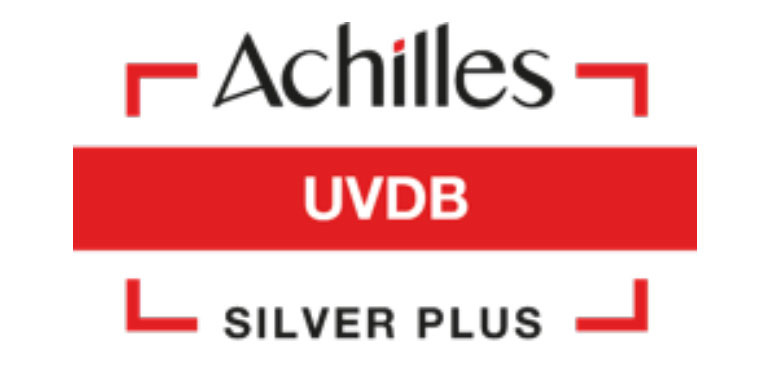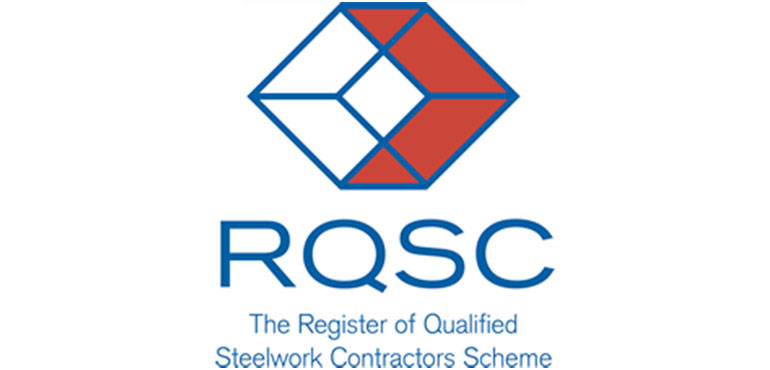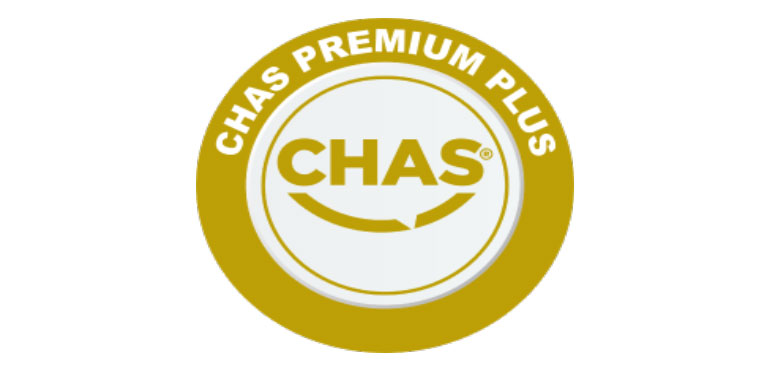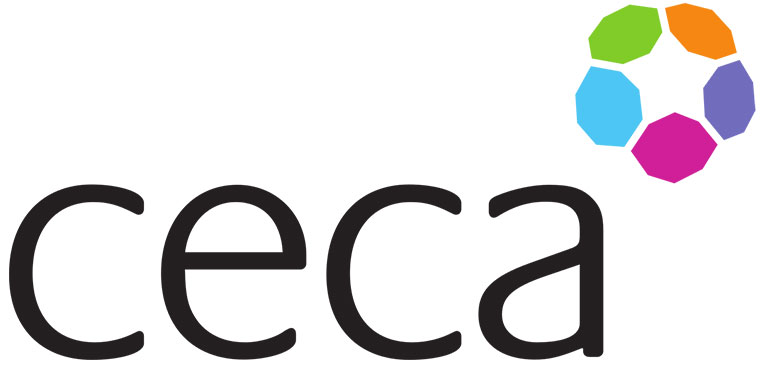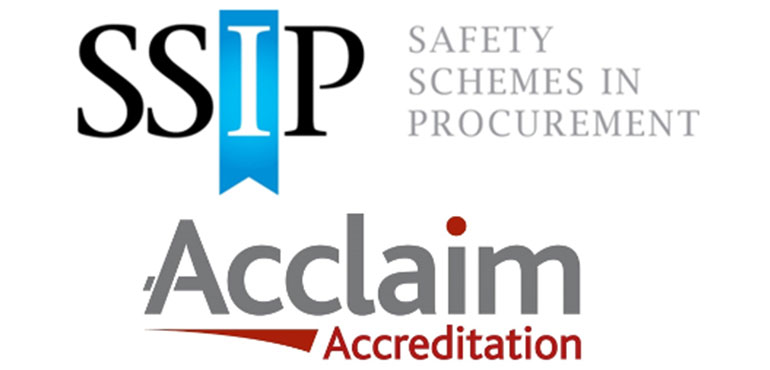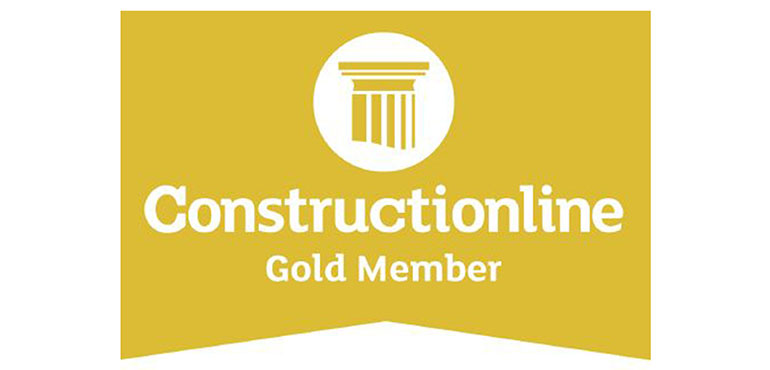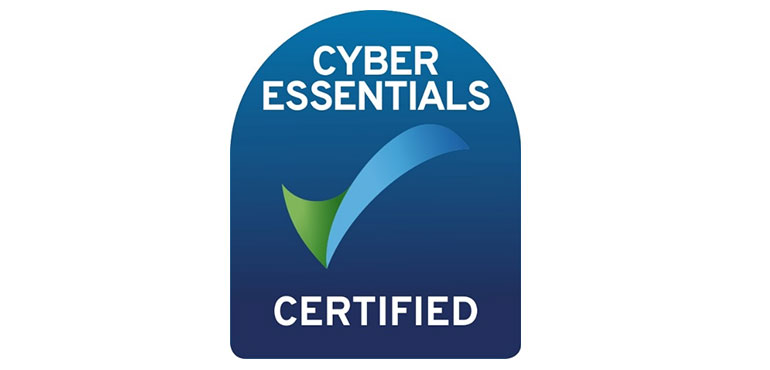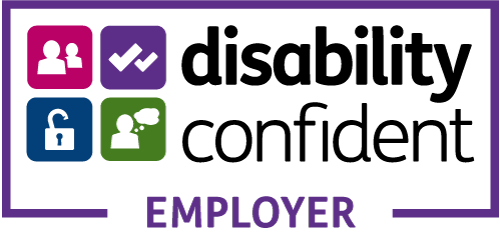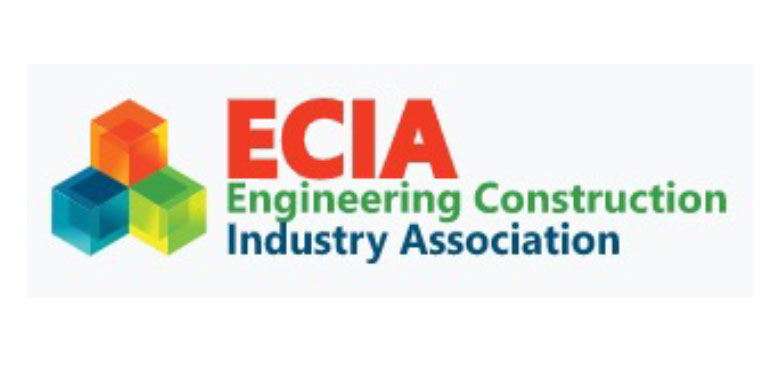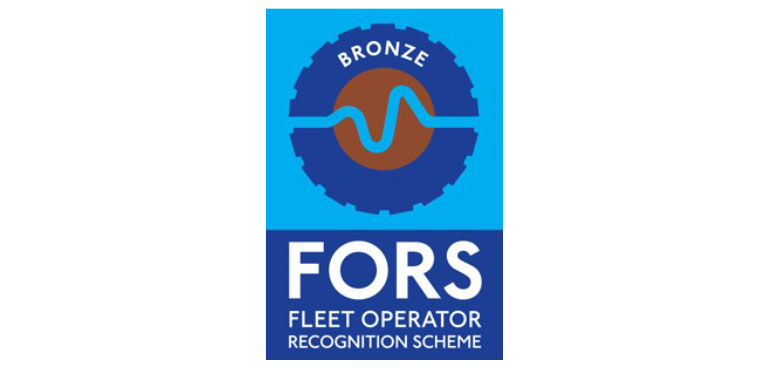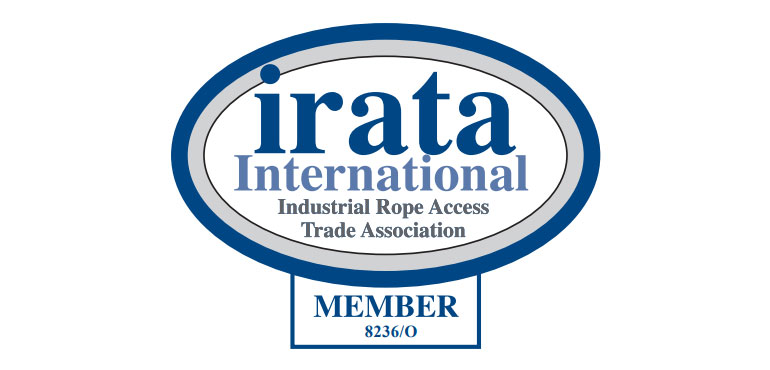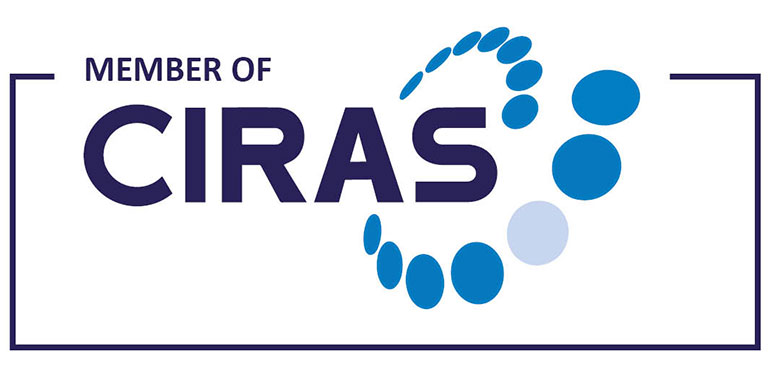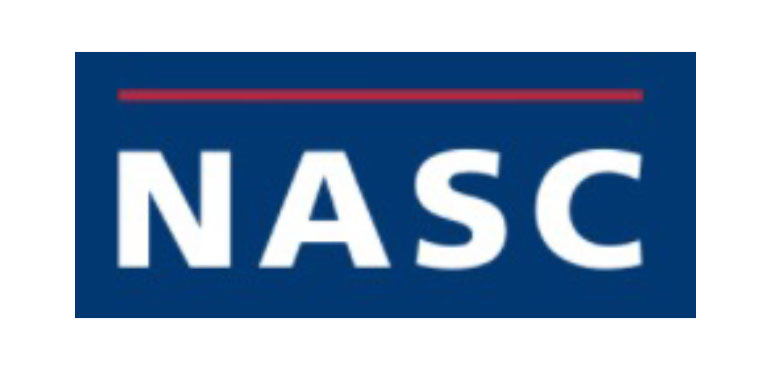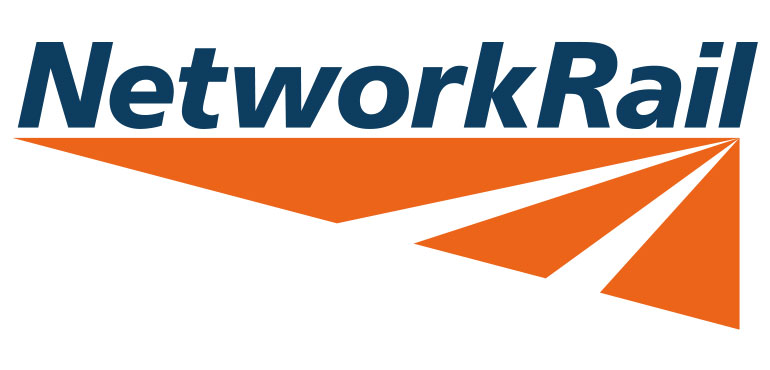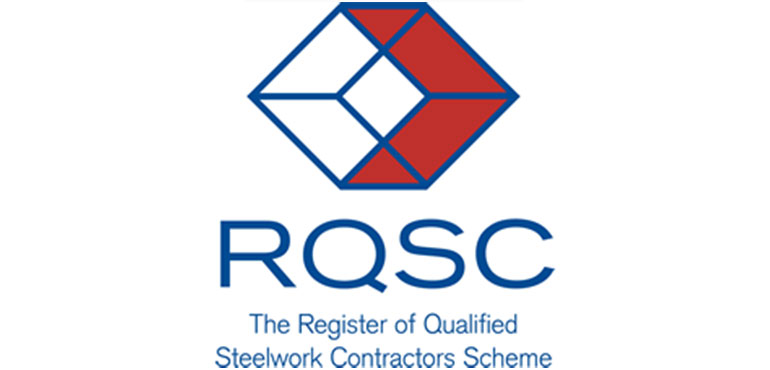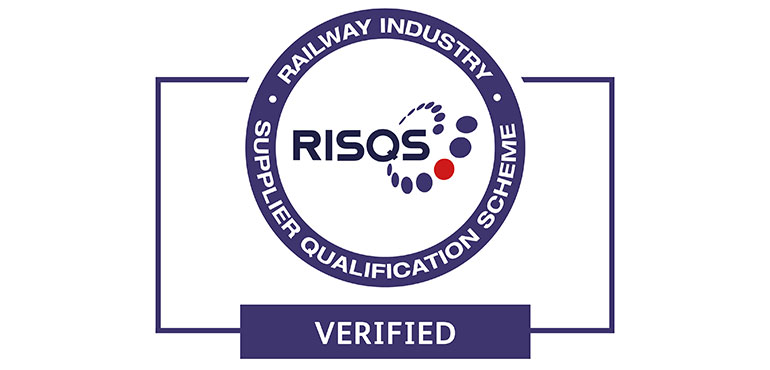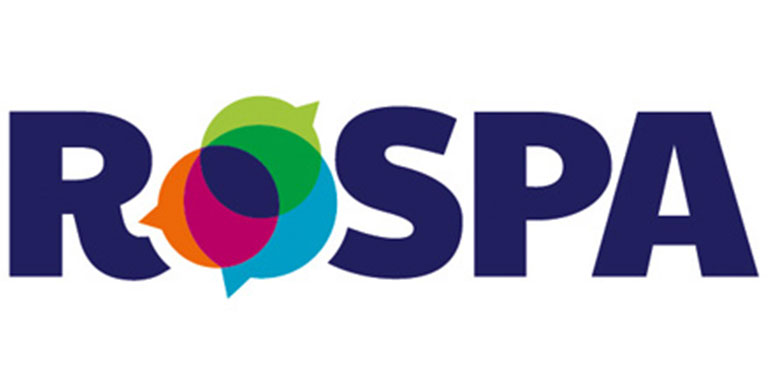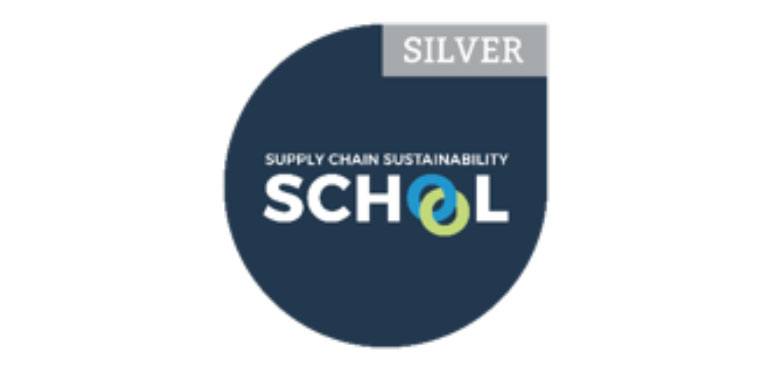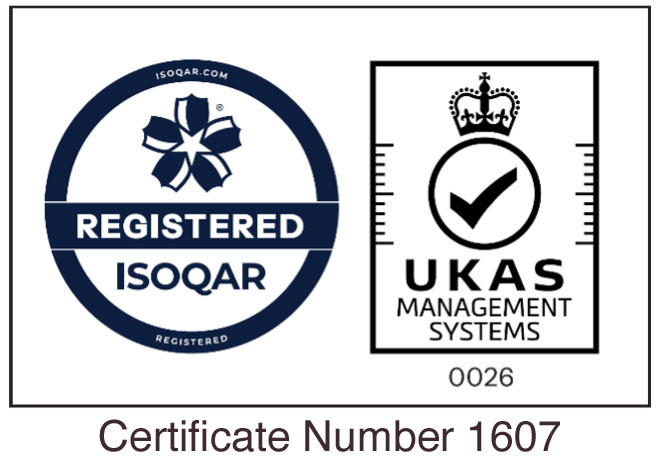Women in Construction Week
Published 7th March 2022
Women in Construction Week was introduced in 1960 by the National Association of Women in Construction. This holiday provides a great opportunity to spread the word about careers for women in the construction industry.
There are so many opportunities for women to excel in a career in construction. Being in this industry means we have a responsibility to increase diversity, welcome women into the sector, and overcome the stereotypes within this (currently) highly male-dominated industry.
Not only are there a vast range of jobs available to women within construction, but the industry is likely to largely benefit from a more diverse workforce. A report by McKinsey & Co. demonstrates that companies with the most gender-diverse executive teams are 25% more likely to achieve above-average profitability than companies with less diversity. With the construction industry only comprised of about 10% of women, we should encourage this percentage to increase.
As Women in Construction Week is from March 6th to 12th, we want to make the most of this by raising awareness around the opportunities available to women in this industry. From speaking to some of the women who work here at Taziker, we have gained some valuable insight as to what it is like to be a woman in construction.
We spoke to Collette Whitson, Graduate Engineer, and Nicola Willetts, Industrial Painter, to find out about some of their experiences and the challenges they have faced whilst working in this industry. Not only have they drawn attention to how far the industry has come in terms of overcoming gender discrimination, but they also highlight the amazing benefits from choosing their career routes. 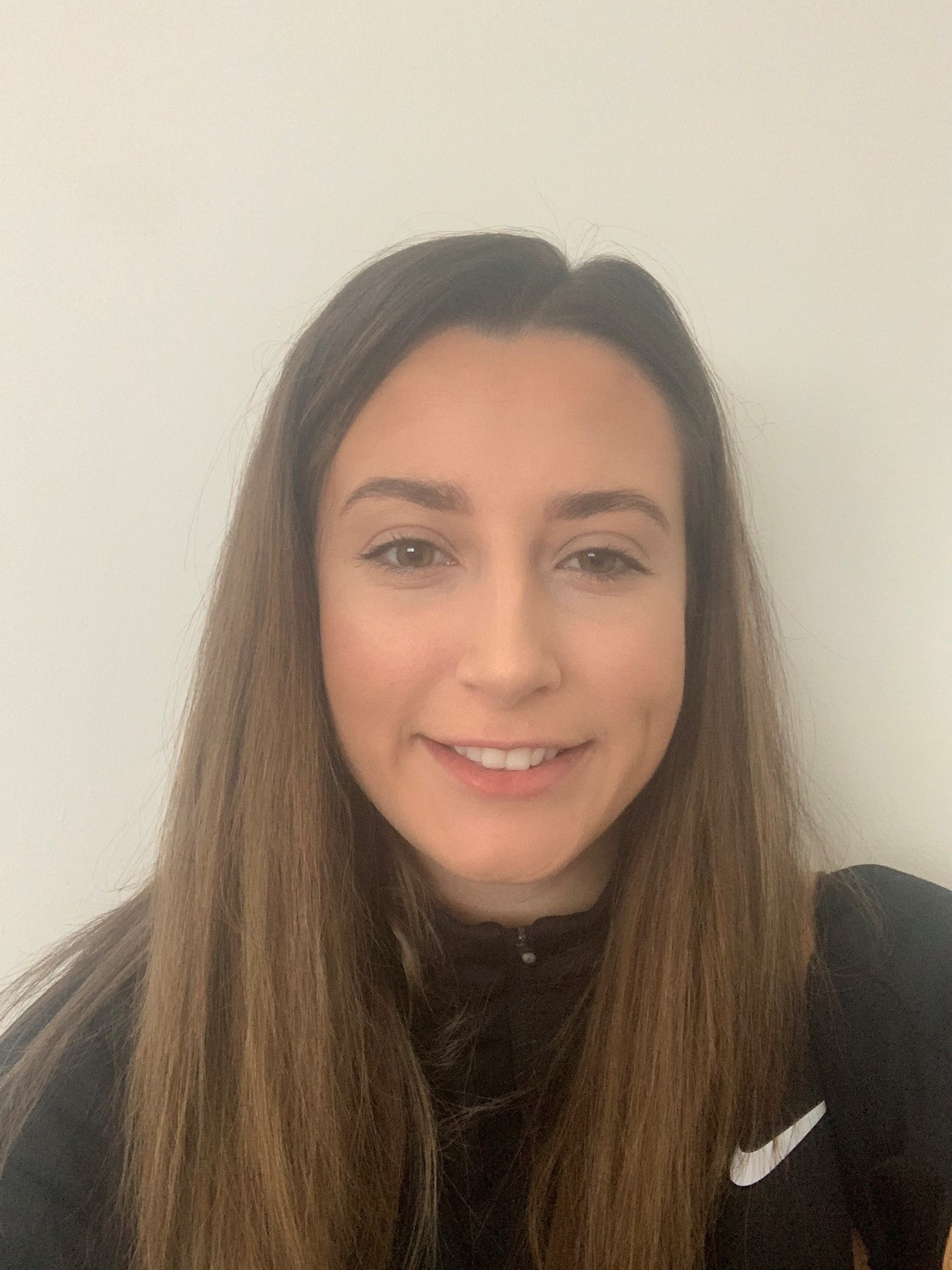
Collette Whitson graduated from University of Strathclyde in 2021 with a Master’s degree in Mechanical Engineering. Collette joined Taziker in April 2021 and is a valued member of our Scotland team. She focuses on civil engineering after gaining civils work experience at a previous company and now she works primarily on site, which includes activities such as setting out, excavation, piling, and concrete works. Additionally, Collette is a STEM ambassador, giving her great ways to influence younger generations about STEM subjects and careers.
Encouragement from a Young Age
Collette’s interest for engineering initially came from enjoyment of STEM subjects in high school. She believed her high school teachers played a big part in encouraging her (and other females) to pursue these subjects due to females being underrepresented in those fields. She then continued to study STEM subjects through to university, where she joined a society for women with an interest in STEM – Equate Scotland. This enabled her to network and build relationships with like-minded women whilst learning more about STEM career opportunities.
After asking Collette what she thinks is the best part about her job, she responded, “Applying university knowledge to real life situations; looking at the new engineering solutions that are being developed; and being able to use new, cutting-edge technology on site. Being able to work as part of a team is a big part of it for me – all the guys I work with are lovely. I always feel welcome, and I don’t ever feel left out.”
Collette provided helpful insight in terms of how her university degree helped prepare her for a career in engineering. As she studied mechanical engineering rather than civil engineering, she said, “A lot of the principles you learn are transferable, but there were a lot that weren’t. For example, they don’t teach you a lot about commercial awareness, which I think they should as it’s a big part of any industry. Doing your reports does prepare you a lot for preparation works, such as work package plans and construction phase plans.”
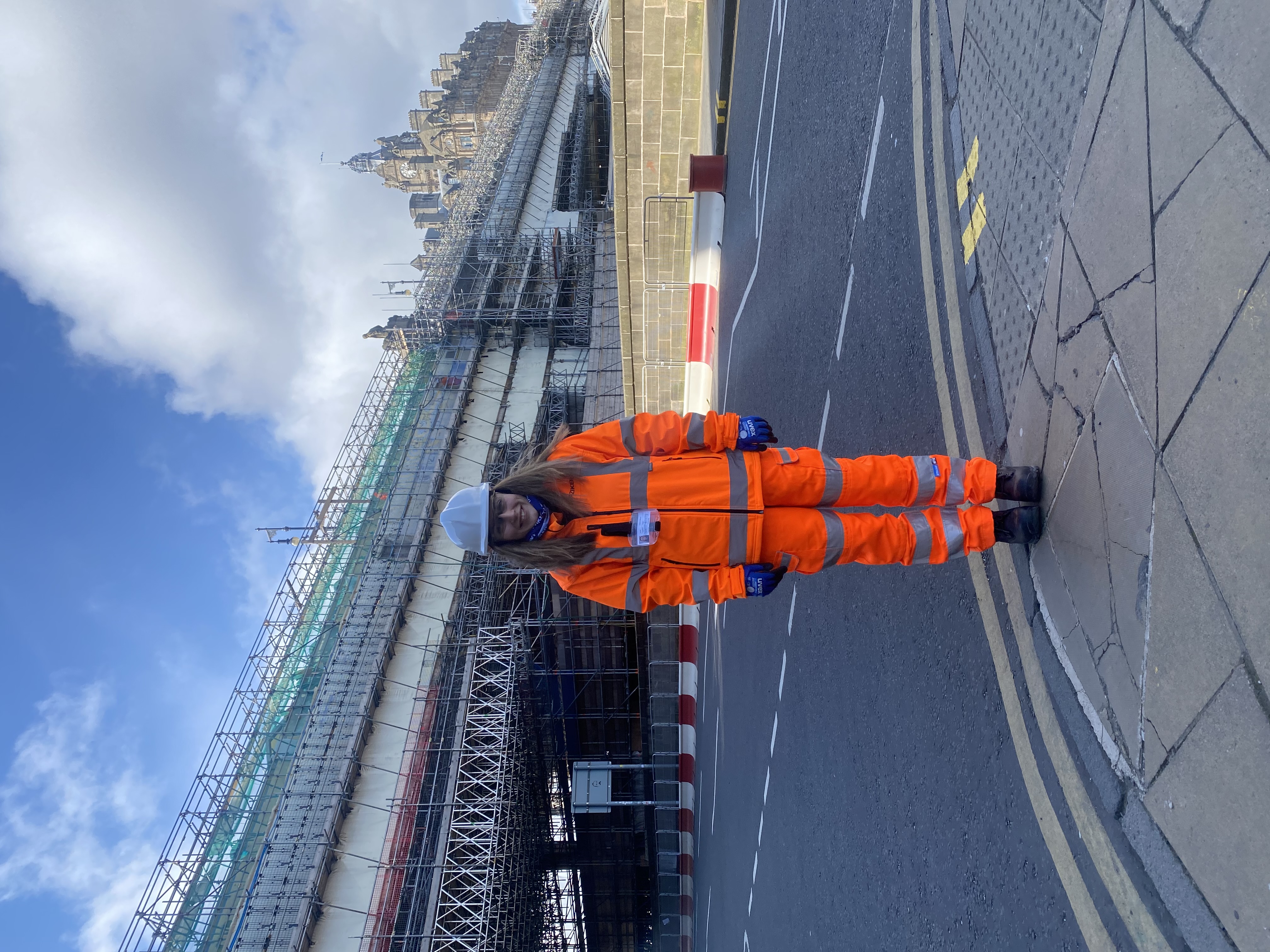 Overcome Obstacles and Exceed Expectations
Overcome Obstacles and Exceed Expectations
When discussing gender discrimination, she explained that she has not had any negative experience of this at Taziker. However, in the previous company she worked at, she said there was one occasion where she felt she experienced unfair treatment. Collette said, “I was getting shouted at and I don’t think that’s the way you should be talking to people. But I’ve not experienced anything like this at Taziker. Nowadays I think it’s becoming a lot more normal for females to have these roles, and I think that a female can bring just as much to a role as a male can. In construction, you might have the odd obstacle you need to overcome being a female but once you overcome it once, then you can just keep doing it.”
Collette also spoke about the advantages of being a woman, she said, “People tend to underestimate you, meaning you’ll often exceed people’s expectations – although they shouldn’t really have low expectations in the first place!”
She described the great benefits that come with a career in the construction industry. In particular, how it is well suited to those who are interested in problem solving, how it is challenging (in a good way!), and that there are great opportunities to grow in this career. Collette said, “It’s an interesting industry. It’s constantly changing, and they’re constantly finding new solutions to different problems. If you’re into problem solving, it’s a great industry to be in. It’s a really well-paid job, and you have a lot of opportunities to advance through the ranks. I would quite like to work up to a Project Manager position.”
Be confident!
As a word of advice to other women interested in a career in construction, she said, “Be confident because you might be faced with a bit of discrimination. If it’s something you really want to pursue, don’t let anyone tell you otherwise. Stick with it and don’t let what other people say discourage you.”
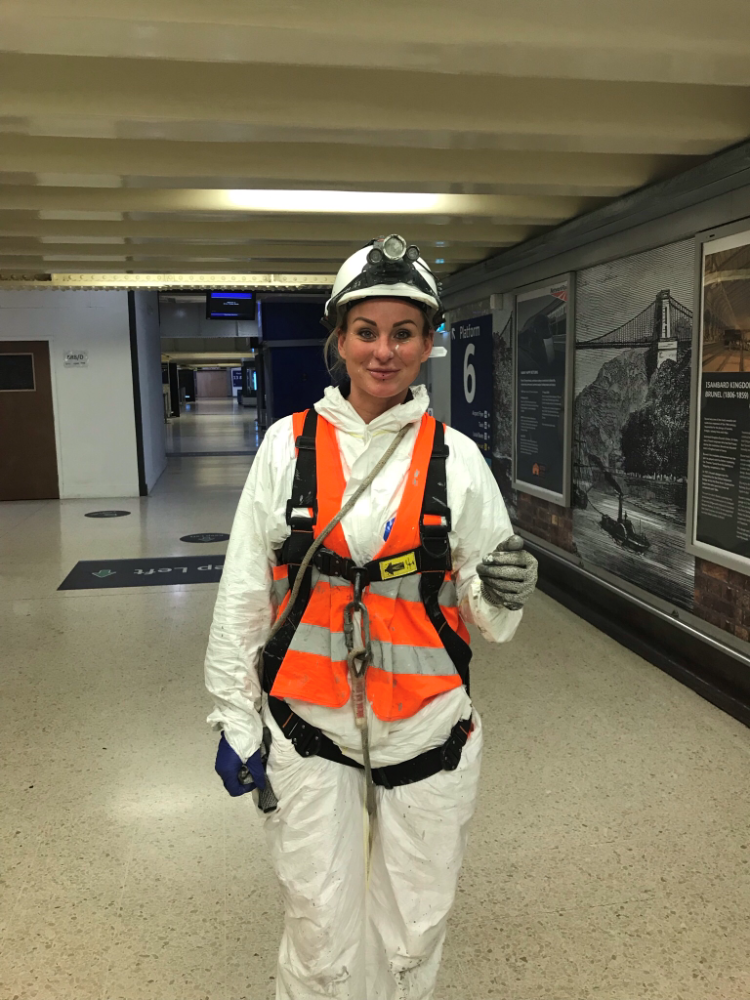 Nicky Willetts joined Taziker 12 months ago as an Industrial Painter – Happy Taziversary! Before joining the company, Nicky was in the automotive industry where she initially gained experience in spray painting. She is involved with surface preparation and protective coatings - and she is hoping to get her qualification in grit blasting next! Nicky is currently working on Paddington Station in London and has previously worked on projects such as Bristol Temple Meads Station, Trinity Cut footbridges, and her favourite, the QE2 bridge in Dartford.
Nicky Willetts joined Taziker 12 months ago as an Industrial Painter – Happy Taziversary! Before joining the company, Nicky was in the automotive industry where she initially gained experience in spray painting. She is involved with surface preparation and protective coatings - and she is hoping to get her qualification in grit blasting next! Nicky is currently working on Paddington Station in London and has previously worked on projects such as Bristol Temple Meads Station, Trinity Cut footbridges, and her favourite, the QE2 bridge in Dartford.
An Ambition to Succeed
Nicky’s enjoyment of spray painting arose from her experience of body repairs in the automotive trade, where she gained experience in preparation and painting. She was motivated to get a job, which would enable her to paint on a much larger scale. With Nicky’s incredible work ethic and determination, she paid for her ICATS course (a qualification for industrial surface preparation and coatings) to give her the best chance of getting her foot in the door. After applying for industrial painting jobs for four months and receiving no job offers, Taziker was very pleased to give her a position and welcome her to the team. She described this as being ‘the best career choice she could have made’.
The best elements of her job include the ability to travel and see different parts of the country; the amazing relationship she has built with her “work family”; the enjoyable work environment (especially when there’s nice weather); and the ability to do something she loves as her job – painting! Nicky said, “I love my work family – that’s what I call them. I love everyone I work with. I love the banter side of things, having a laugh with all the men.”
Get Stuck in and Earn Respect
As this is Nicky’s first job in the construction industry, she did not have too much to say regarding gender discrimination within the industry as she has not experienced any at Taziker. Instead, she talked about how being a woman has often worked in her favour. She said “I’ve never experienced gender discrimination, if anything, I think I might get favouritism treatment! I always end up with the best PPE wear; we have an ongoing joke that it’s favouritism. I couldn’t ask for better team members and all my managers have been fantastic with me. They always ask me if there’s anything I need or want. As long as you prove you do want to do the work and you get stuck in, then you earn the respect from employees, and they’ll give you that respect back. If I am struggling in anyway, they will help and support me.”
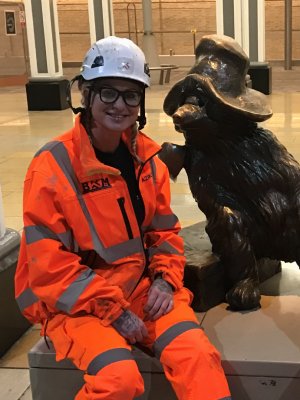 “When I was in the process of applying for industrial painting jobs, they didn’t give particular reasons why I’d been rejected. I did get a lot of companies that didn’t accept me, or just didn’t respond to me. Whether or not this was down to my gender, I’m not sure. But posting on LinkedIn allows those employers to see how well I’m progressing in my career and hopefully encourages them to give more women a chance within their company.”
“When I was in the process of applying for industrial painting jobs, they didn’t give particular reasons why I’d been rejected. I did get a lot of companies that didn’t accept me, or just didn’t respond to me. Whether or not this was down to my gender, I’m not sure. But posting on LinkedIn allows those employers to see how well I’m progressing in my career and hopefully encourages them to give more women a chance within their company.”
Nicky enjoys connecting with other female Industrial Painters on LinkedIn and believes social media is a great platform to witness the growing number of women in the industry. As well as this, she mentions how she has been surprised by how many women she has seen on site recently. “When I’m on site in my full PPE, I often see little girls look as they’re walking past, and I just wave to them. I just think hopefully when they look, it draws them in to do different things.”
Nicky gave some useful advice to women looking to enter into a career in construction, “If you’re fully committed and you know that’s what you want to do, the best advice I could give is to step outside of your comfort zone and go for it. Don’t let anything or anyone knock you back, and just stay focussed. Do the job the best you can!”
Are Times Changing?
Both Collette and Nicky have highlighted some of their favourite parts about working in this industry. One thing they both mentioned was working as part of a team as it can make day to day work much more fun, and they are able to support and motivate one another. It was great to hear that they had not really experienced much gender discrimination although they are in a male-dominated industry; hopefully this can help other females see that times are changing, and this should not discourage you to entering this industry.
